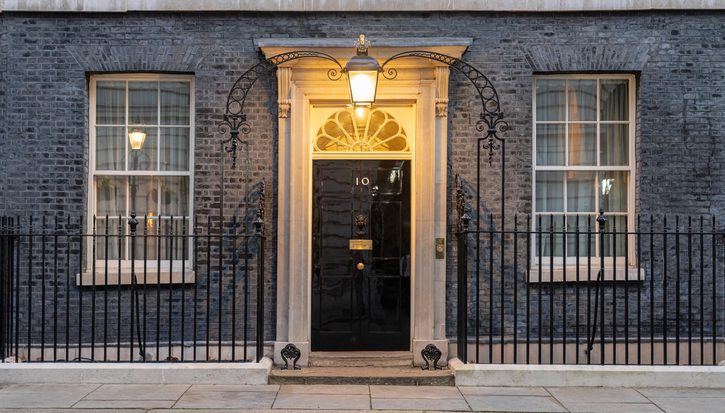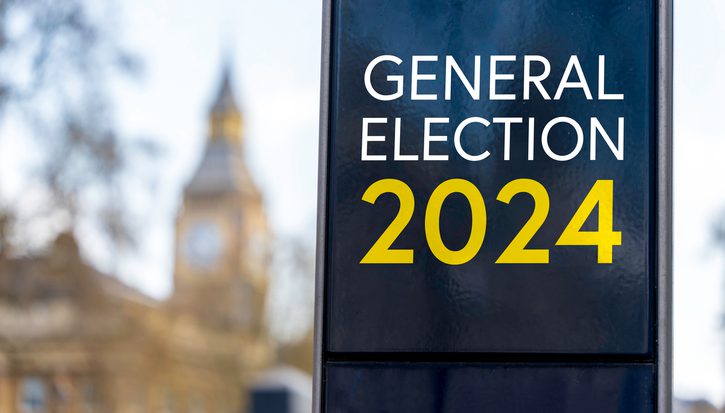Labour, the constitution and the politics of identity
Article
Until quite recently, the United Kingdom was one of the most centralised states in the western world. The administration of the country was focused on London and the political life of all parts of the United Kingdom was orientated, to a greater or lesser extent, around the capital.
True, at different times steps had been made to recognise 'national' sentiments in Wales and Scotland, starting as far back as 1885 when the Scottish Office was established. But the general pattern in the post-war period was one of ever greater centralisation. This trend reached its high water mark during the 18 years of Conservative administration from 1979 to 1997 when central government become even more dominant and Conservative secretaries of state, particularly in Wales, behaved like 'colonial governors'. Nothing summed up those years better than the image of John Redwood, then secretary of state for Wales, inanely attempting to mouth the Welsh words of the Welsh national anthem.
The election of a Labour government in 1997 signalled an overdue change of direction. Soon after Labour's election victory, pre-legislative devolution referendums were held in Scotland and Wales and 'Yes' votes secured in both countries. In Scotland, a parliament was re-established, with wide legislative powers in many domestic policy areas. In Wales, where the enthusiasm for devolution was weaker, an assembly was created with powers over secondary legislation. These powers were subsequently enhanced after the successful referendum in May 2011. Importantly, the Northern Ireland Assembly gave Northern Ireland a formal relationship with the Irish Republic, while maintaining the Union with Britain.
Under the Blair government, devolution was to have been extended to the English regions through the creation of regional assemblies. But only one referendum was held - in the North East - and the result was a heavy defeat for the proponents of devolution; the planned rolling programme came to a shuddering halt.
As a consequence of these developments, today the United Kingdom has a structure of asymmetrical devolution in which Scotland, Wales and Northern Ireland each have quite different forms of devolved government, while the largest part of the UK, England, retains a non-devolved system of government. London of course provides a qualification in that it has a directly-elected mayor and an assembly fulfilling a scrutinising role. There are in addition now 15 other elected mayors in English towns and cities, although, as with the Mayor of London, they essentially draw powers from local, rather than central, government. Nevertheless, in the case of London, the mayoralty has created a hugely significant political platform for the incumbent.
These limited changes not withstanding, one of the paradoxes of the past 15 years is that while unprecedented decision-making has been devolved from London to Scotland, Wales and Northern Ireland, within England, power has tended to gravitate still further to the centre. Under both Labour and now the coalition, the focus on delivering government-defined targets and objectives has drawn more powers, which were formerly held by local authorities, to the centre.
More than ever before, Britain's unwritten constitution is now a complex mosaic, and it has shown itself to be flexible enough to allow differing pressures and developments to be addressed successfully. This is certainly the case with regard to devolution. To date, there has been an impressive versatility which has allowed particular identities and demands to find expression within the parameters of the British state.
The biggest test however will come in the independence referendum in Scotland, expected in 2014. It is of course far too early to predict what will happen but the early indications are that the Scottish people will vote to maintain the Union. If this is the case, the question then will be how devolution will be developed further. Indeed, if the Scottish people reject separation, it would be a mistake to assume that they will be endorsing the constitutional status quo. I would argue that whether or not there is a formal vote for 'devo max' in 2014 there is a popular will for enhanced and stronger devolution to Scotland, but within the framework of the UK. So a 'no' to independence will not be a 'yes' for the status quo. Scottish Labour therefore needs to take the lead in arguing for a new and dynamic devolution settlement, firstly to defeat an independence vote, but secondly - and as importantly - to meet the legitimate aspirations of the Scottish people.
This debate though cannot be confined to Scotland; it must also involve the rest of the UK. Devolution for Scotland is about bringing decision-making closer to the Scottish people but it is also about creating a new relationship with the rest of the UK, and that requires all parts of the UK to be supportive of the devolution project. For such a debate to be truly purposeful, and therefore successful, there needs to be a better understanding in English political circles, especially about the distinctiveness of Scotland and why Scottish people wish to see a strong institutional expression of their sense of identity.
Equally, as Ed Miliband has begun to argue, the growing feeling of Englishness should be widely recognised and, indeed, welcomed. Traditionally, the centre-left has been uncomfortable with 'patriotism', and has sometimes confused it with 'nationalism'. The two of course are very different; nationalism is essentially inward-looking and seeks to define nationhood through negative comparisons with others. In contrast, patriotism is about love for one's country and implies community and fraternity.
For too long, many English people have been reticent about articulating and expressing their English identity. This is no longer the case. A report by the Institute for Public Policy Research (IPPR) has recognised that there is a growing English identity which, perhaps for the first time, transcends both class and geography. It follows that Labour needs to consider how that sense of identity should be given material expression. Addressing the West Lothian Question so that English MPs have more of a say over English-only legislation in the House of Commons would be a good starting point. Equally, Labour needs to continue to emphasise that it believes decision-making should be devolved to localities and communities. This makes economic sense as well as enhancing democratic engagement.
It is worth noting that in Wales, one of the reasons Labour is generally doing so well is because Welsh Labour so accurately reflects Wales' growing sense of identity as well as its political values. Most Welsh people, and I am a Welshman myself, see themselves increasingly as Welsh, but do not see that identity as being incompatible with also feeling British. In Wales, as in Scotland, devolution should be taken forward in a way which is appropriate to the needs of the country and the aspirations of its people.
To advocate greater decentralisation to all parts of the UK does not imply that Britishness has to be weakened or diluted. But it does mean that Britishness has to be redefined. No longer is it appropriate for Britishness to be seen as a 'higher' identity which somehow supersedes the national identities of the constituent nations of the UK. Rather, Britishness ought to be seen as an all-embracing identity which brings together all parts of the UK and all its peoples in a spirit of partnership.
The clearest expression of modern Britain was seen at the London Olympics and Paralympics. Both at the events themselves and in Danny Boyle's brilliant opening ceremony, we saw hugely moving statements of modern Britain in the 21st Century. The ceremony, in particular, gave a powerful depiction of the positive factors which have helped create modern Britain, before moving on to celebrate Britain's creativity and vitality and its cultural diversity.
This view of Britain is a long way from the traditional image of Britain which emphasises the role of Empire in our history and the 'gifts' which we have 'given to the world', rather than for example recognising the NHS as an important national achievement. That is why some Conservative MPs and right-wing political commentators were so uncomfortable with the ceremony. Importantly, all the evidence suggests that most British people were enthusiastic about Boyle's depiction because it reflected accurately the Britain which they relate to and value. It was, as Aneurin Bevan would have said, in tune with their realities.
Labour's vision for Britain is based on the celebration of diversity not the imposition of uniformity. That vision is not new in that it is drawn from a particularly rich social democratic tradition: a tradition which does not equate social progress with the creation of impersonal and distant state bureaucracies but sees the extent of individual fulfilment as one of the key measures of a good society. The devolution of decision-making and decentralisation in a multiplicity of ways is central to realising such a vision. Bringing power closer to the people is an enthusing principle which is relevant to all parts of the country. The challenge we face is to develop different and appropriate policies of empowerment for all parts of the United Kingdom, while developing a coherent enabling framework for the UK as a whole. This means that Labour needs to engage with the politics of identity in a new and meaningful way as well as developing a programme of radical constitutional reform.
Related items

Dr Parth Patel on BBC Politics Live - July 2024
IPPR's Dr Parth Patel on BBC Politics Live discussing the new Labour government, Covid, migration and international affairs
A ‘mandate’ to deliver: Who voted Labour and what do they want?
This year’s general election saw the Labour party achieve a historic landslide, winning 218 new seats and a comfortable majority in the House of Commons.
Half of us: Turnout patterns at the 2024 general election
One-half of adults in this country voted at the 2024 general election, the lowest share of the population to vote since universal suffrage.